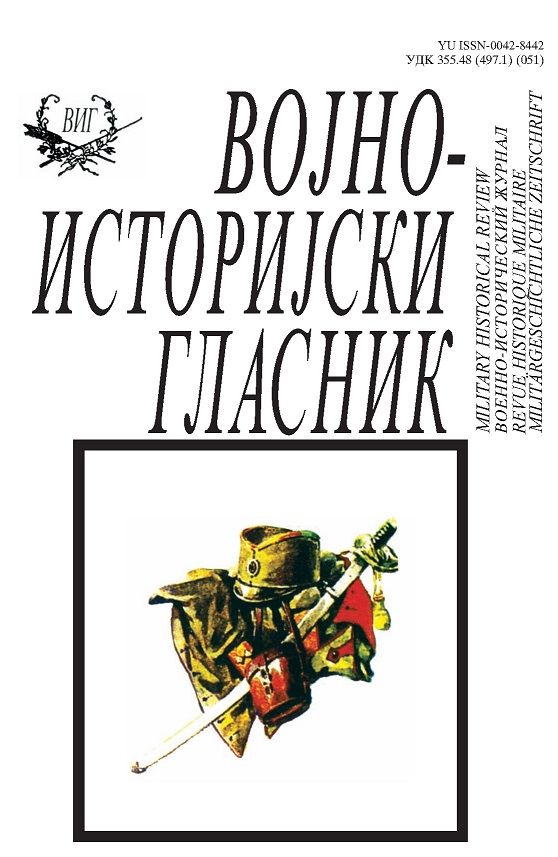О неким узроцима пораза руске војске у источно-пруској операцији
On the Reasons of the Russian Army Defeat in the Eastern Prussia Operation
Author(s): Oleg R. AyrapetovContributor(s): Dalibor Denda (Translator)
Subject(s): Military history, Pre-WW I & WW I (1900 -1919), Peace and Conflict Studies
Published by: Institut za strategijska istraživanja
Keywords: Russian Army; Eastern Prussia operation; defeat; military operations; pre-World War I period; World War I;
Summary/Abstract: The article, based on the documents of the Hoover Institution on War, Revolution and Peace, the manuscript department of the Russian State library, memoirs, published documents and contemporary studies, deals with the problem of the North-Western front defeat in 1914, in the very beginning of the World War 1. Whilst the Russian military intelligence (and first of all – the intelligence department of the Warsaw Military district stuff) was able to supply its command with the detailed information on the German military planning documents, including the famous Schlieffen plan, German war games in 1906–1912, the fortifying system of eastern frontiers of Germany, the Russian High command couldn’t effectively use that information. Intrigues and conflicts between the head of the War ministry general V.A. Sukhomlinov and Grand Duke Nicholas Nicholaevich the Junior led to the fatal stoppage of the high rank military leaders of the Imperial Russian army training via military games in 1910–1914 period. The only war game was held in the spring of 1914, which was too late to introduce any changes. Thus in the August of 1914 neither the Supreme Headquarter, nor the North-Western front staff and its commander were fully prepared for their mission, the plans they had, were not properly tested. The 2-nd Army commander general A.V. Samsonov faced much more complicated problem: a) he didn’t know the terrain of his future offensive; b) he didn’t like the idea of it; c) he had “an improvised staff”, not yet prepared for that mission. All that Samsonov could do was to obey the commands, that pushed him forward. Quite paradoxically the pre-war intelligence information became the skeleton of Zhilinsky and Grand Duke Nicholas actions. Both seemed to forget the axiom „no plan survives initial contact“, both seemed to neglect the possibility of the changes in the enemy’s plans, both actively opposed their subordinates’ commanders initiative. The result was inevitably disastrous.
Journal: Vojnoistorijski glasnik
- Issue Year: 2008
- Issue No: 2
- Page Range: 107-129
- Page Count: 23
- Language: Serbian

